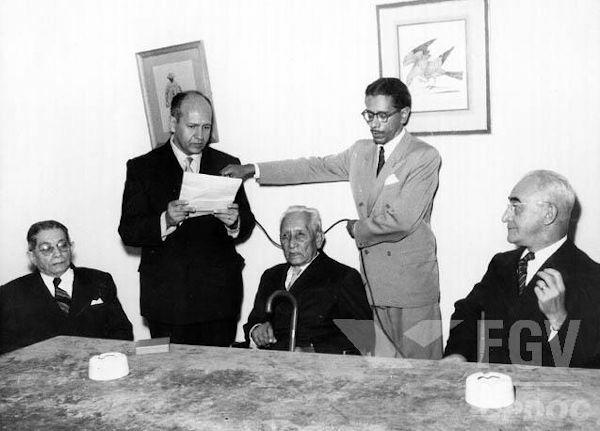The constitution promulgated in 1988 was the great mark of redemocratization in Brazil after the civil-military dictatorship from 1964 to 1985. The main purpose of the constitutional text was to guarantee, in general terms, social, economic, political rights and cultural that were suspended in the previous period, and that would later be regulated by laws specific. This was one of the criticisms made of the constitution, in addition to being considered too extensive. Another fact that marked the elaboration and voting of the constitution concerns the participation of social forces that were far removed from the decisions of the state bodies.
A feature of the 1988 Constitution was the division and independence of the three powers of the Republic: the Executive, Legislative and Judiciary, however with reciprocal control responsibilities between they. The adoption of the presidential regime, ratified by plebiscite in 1993, gave the President of the Republic the power to command the administration of the federal executive through direct elections with the participation of the entire population greater than 16 years. Those responsible for state and municipal powers would also be elected, dividing a series of responsibilities between the three spheres of scope of powers (municipal, state and federal).
Do not stop now... There's more after the advertising ;)
Freedom of press, thought and organization was another social achievement achieved after years of prior censorship and political persecution. Private property was maintained, despite being obliged to fulfill its social function. Indigenous and quilombola peoples obtained the right to demarcate the lands where they lived. The Magna Carta (as the constitution is also known) also presented the guidelines for the use of the country's underground mineral wealth and for the constitution and operation of state-owned companies. In addition, it sought to guarantee universal access to health and education for the entire Brazilian population.
Image source – Brazil Agency
By Tales Pinto
Graduated in History
Would you like to reference this text in a school or academic work? Look:
PINTO, Tales dos Santos. "The Constitution"; Brazil School. Available in: https://brasilescola.uol.com.br/historiab/constituicao.htm. Accessed on June 27, 2021.



